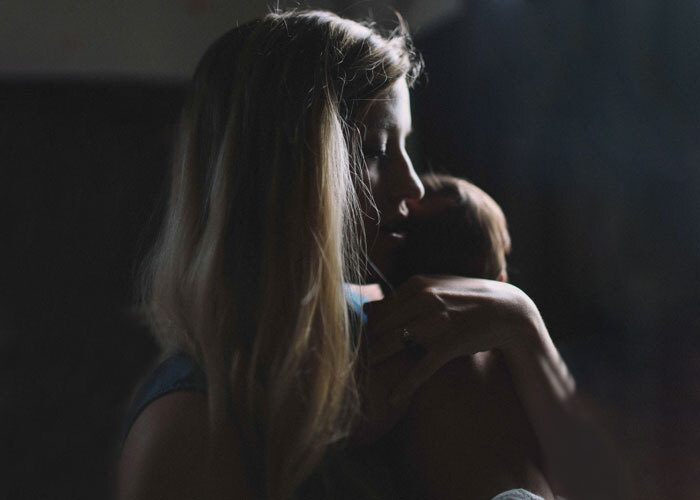Postpartum depression in new mothers is a mood disorder that affects women after childbirth.
In the United States, postpartum depression affects one in seven women and is difficult to diagnose at first. However, these are the key symptoms one can look out for – feeling sad, anxious or overwhelmed, having trouble sleeping or eating. It could even be feeling isolated or unsupported.
Postpartum depression often goes untreated for a long time because it’s seen as a “normal” reaction to childbirth.
Treatment typically includes psychotherapy, antidepressant medication, or a combination of both. Most women recover within six months after birth, while others may take years. If you are experiencing any of these symptoms, it is important to seek professional help and talk to your doctor or therapist.
When treating postpartum depression, there is no one-size-fits-all strategy, but these tips can surely help you lead the road to recovery.
Get Plenty Of Rest
Getting enough rest in your early days and weeks after giving birth can be a great way of dealing with postpartum depression. Though this can be difficult with a new baby to take care of, it’s important to make time for yourself. You can seek help from your partner, family, or friends to take care of the baby while you take a nap or relax.
Eat Healthy Food
Eating healthy foods during and after pregnancy is very important. It helps to keep you strong and healthy both physically and mentally.
Try to include foods high in protein, fiber, and vitamins in your meals as often as possible. They are known to reduce symptoms of postpartum depression, including fatigue and cravings.
Additionally, avoid eating too much sugar, caffeine, and junk food. These foods have been found to increase the risk of developing postpartum depression.
Exercise Regularly
Keep your body active after giving birth; exercise is a great way to do that. Though it might feel like a struggle at first, try gradually increasing the amount of exercise you’re doing each week. You’ll be glad you did it!
Exercise will help take care of postpartum depression symptoms and improve your mood and energy levels.
Some of the recommended types of exercise for postpartum mothers include:
- Stretching
- Toning your body with Yoga or Pilates
- Cycling or brisk walking
- Swimming
- Jogging
Talk To A Doctor Or Therapist
Talk to a doctor or therapist if you’re struggling with any of the symptoms of postpartum depression. Health professionals are best placed to treat and provide tips to help postpartum depression. If necessary, they will prescribe medication or therapy that will help improve your symptoms.
Seek Support Groups, Friends, And Online Resources
It can be challenging to cope with postpartum depression on your own. Many support groups are available for new mothers struggling with postpartum depression, like PPMD online forum and other online resources that offer advice and support.
You can also ask your family and friends to offer support in different ways. They may be able to listen when you need to talk, provide a shoulder to cry on, or help out with the baby while you take a break.
Take Care Of Yourself Emotionally And Physically
Taking care of yourself emotionally and physically after giving birth can be one of the best tips to help with postpartum depression. There are many ways to care for yourself to get through this challenging time as best as possible.
Take a few hours each day to relax or enjoy simple things like sitting in the sun or watching a comedy. When you feel overwhelmed, finding the motivation to take care of yourself can be difficult, but taking some time will help you reconnect with your own needs and goals.
If you find yourself struggling with postpartum depression, please seek help. Many resources provide great tips to help postpartum depression and get you through this difficult time.
Misconceptions About Postpartum Depression
There are many misconceptions about postpartum depression (PPD). Some people think that PPD is a sign of weakness or a character flaw, and others believe that PPD only affects women new to motherhood and that men can also experience it.
Postpartum Depression Is Only A Problem For New Moms
Rates of postpartum depression are highest for mothers who have had their first child within the last year. But the condition can affect anyone who has recently had a baby. This includes fathers, adoptive parents, and women who have had miscarriages or abortions.
PPD Is Just A “Mummy’s Blues” And It Will Go Away
The base of this misconception is that PPD is simply a phase – like the baby blues after childbirth – and will eventually go away on its own. But PPD can be a long-term condition that requires treatment. About one in five mothers experience full-blown PPD after childbirth.
Postpartum Depression Is Caused By Hormonal Changes
Hormonal changes play a role in postpartum depression, but they are not the only cause. Other factors such as sleep deprivation, stress, and isolation can also contribute to developing postpartum depression.
Postpartum Depression Isn’t Treatable
Fortunately, postpartum depression in new mothers is treatable with counseling and medication. If you’re struggling with postpartum depression, don’t hesitate to contact your doctor or a mental health professional for help.
Conclusion
Postpartum depression is a serious mental health condition affecting any new or experienced mother after childbirth. It can become a long-term condition that requires treatment, and many resources are available to help you get through this difficult time. Understanding the tips for preventing postpartum depression and getting help if you or someone you know is struggling can make a huge difference in your recovery.
Also read: Common Postpartum Complications
